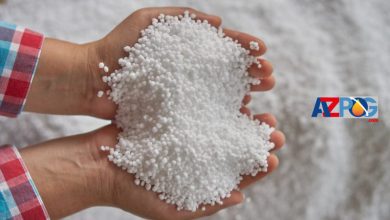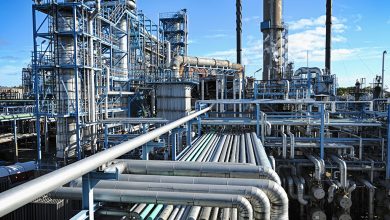- دانش قدرت است
- در آینده ممکن است
- طرفداران تیم های Hibs و Ross County در فینال
- نکته روز : آن مرد دوباره
- طرفداران تیم های Hibs و Ross County در فینال
- Spieth در خطر ناپدید شدن
In today’s world, despite the progress of industry and technology, the need for fuel consumption is more than before. This also causes damage to the environment and makes living conditions more difficult for humans. But in the meantime, the use of some fuels is known as clean fuel and they can be considered as a suitable alternative to fuels with many pollutants.
In nature, there are various types of gases with different characteristics and applications. Among these gases, propane is known as one of the clean fuels. Next, to questions such as what is propane, what are its uses and properties, and what are its sources; We answer.
What is propane?

Propane gas is known as liquid petroleum gas or LPG. This gas is stored as a compressed liquid and is known as a non-toxic, colorless and almost odorless gas. But to identify a smell is added to it so that it can be recognized.
From propane, it is used for household purposes to the fuel of cars and industrial engines. This clean fuel is a flammable hydrocarbon gas and is converted into a liquid through pressure.
It is interesting to know that this gas liquefies at relatively low pressures and can be stored in steel containers, small BBQ gas bottles, larger gas cylinders and LPG tanks. But in the meantime, the propane gas capsule is known as one of the most widely used storage tanks for this gas.
Propane, from natural gas processing and oil refining, using natural gases that include about 90% methane, 5% propane and 5% other gases; extract.
This gas is a three-carbon alkane with the molecular formula C3H8 and exists as a gas in STP conditions. But for transportation, it is condensed and turned into a liquid. This material is a by-product of oil refining and is mostly used as fuel. Propane is one of the components of LPG liquid gas mixture and due to its low boiling point, it is also used in cooking capsules.
History of propane gas
For the discovery of this gas, an exact date cannot be considered. Because propane was discovered by several people. But for a better understanding of this gas, it can be said that before it was discovered as a natural substance, it was synthesized and created in the laboratory.

In the 1850s and 1860s, a French chemist named Pierre-Eugène Marcellin Berthelot was able to synthesize propane, among other notable and important organic compounds such as methane, acetylene, and benzene. Marcellin was able to create the composition of propane gas. But he did not realize that this gas has a good potential to be a source of fuel.
Then Dr. Edmund Ronalds, as an industrial chemist, was able to discover this gas as a natural substance in 1867 while dissolving Pennsylvania crude oil. After that, in 1910, Walter Snelling, as a chemist and expert in explosives, confirmed the presence of propane as a volatile substance in crude oil.
After some time, this chemist was able to discover propane gas as a fuel source and started marketing LPG in 1912. He was the first person to change the fuel used in his home to this gas.
Of course, in the beginning, this gas was also used as a fuel source for cutting metals, and it was in 1918 that the first blowtorch without a pump with LPG fuel was introduced. In the 1920s, the sale of this gas as a fuel grew more and gradually grew more and more according to the following steps:
- Development of the first propane-fueled home cookware in 1927
- Supplying the gas needed for the cooking equipment and the water heater of the Olympic Village during the 1932 Olympic Games.
- Addition of odorant to better identify this gas in 1932
- Propane gas was approved as a clean fuel source in 1990 by the Clean Air Act
- Approval of the Energy Policy Act of 1992 for this gas as an alternative fuel source
According to the materials published in various sources, until today the propane industry, which is also known as liquid petroleum gas or LPG; It is growing day by day and in 2020 the value of propane market in the United States has reached about 34.2 billion dollars.
Propane gas sources
As mentioned, propane is primarily a by-product of natural gas processing, and some of it is also extracted during the refining of crude oil using a distillation tower. Propane is known as a fossil fuel and is obtained using refrigeration.
You might think to yourself that propane is made from natural gas; But this is a wrong idea, because this gas is the result of extraction and separation from natural gas. It is interesting to know that propane can be extracted from cold natural gas in addition to butane and ethane in processing plants, because the most important thing in processing natural gas is to remove propane, butane and ethane to prevent condensation in gas pipelines.

Propane-ball-and-rod-model
What is the density of propane?
At a temperature of 25 degrees Celsius, the density of propane gas is 31.808 kg/m. Also, this gas has a density equal to 30.493 g/cm in its complete state
Properties of propane
In general, propane is a colorless and odorless gas and turns into a liquid at normal pressure and a temperature lower than -42 degrees Celsius. This material, like other fuels, is flammable and produces water and carbon dioxide in the presence of excess oxygen. The heat resulting from the complete burning of propane is 50 MJ/kg.
It is interesting to know that propane, compared to other fossil fuels and gasoline, causes less pollution and for this reason it is also known as a clean fuel. In the chemical composition of this substance, there is a lot of hydrogen, and as a result, it burns at a higher temperature than other fuels such as diesel.

This gas burns with a bright flame and this characteristic is due to the presence of carbon-carbon and multiple bonds in propylene and butylene and the production of other organic wastes in addition to carbon dioxide and water.
But propane has other advantages as follows:
- clean fuel
Substituting propane instead of other fuels, such as gasoline and fuel oil, is a big and cost-effective step in the economy and having clean and pollution-free air. The use of this gas also helps to reduce greenhouse gases such as carbon dioxide and air pollutants such as carbon monoxide and nitrogen oxide.
- Used for different weather conditions
Propane reliability is important. Because it is important for most gas consumers not to suffer from lack of quality and quantity of fuel. In this sense, propane eases the mind of the consumer, and you can count on the heat resulting from burning and consumption in adverse weather conditions and natural disasters.
- Economical compared to oil
Due to the increase in the price of other fossil fuels in recent years, propane has a more reasonable price and can be used more and at a lower cost than other gases.
Propane applications in home use
In general, propane is used in various cases such as space and water heating, cooking and as a fuel substitute for some machines. Of course, it is interesting to know that the uses of this gas are increasing day by day and it has a lot of variety. These applications can be used to provide fuel for many household appliances, including the following:
- Grill fuel
One of the uses of propane gas is to use it as a fuel for barbecue burners.
- water heater
Using propane to fuel your water heaters allows you to fuel your tankless water heaters at a more affordable cost than electricity.
- Generators
Propane is known as one of the most popular fuels for use in residential generators.
- clothes dryer
Many dryers today use propane because it is hotter and more efficient than electric models. These types of dryers create less static on your clothes.
- fireplace
This gas can also be used to light a uniform fire in the fireplace. Propane produces more heat than wood and is a good alternative to using wood to start a fire in rural areas away from gas lines.
Applications of propane in industries
As it was said, apart from domestic use, propane also has many uses in industry and trade, which are explained below:
- agriculture
The energy needed by many equipments used for agricultural products can also be supplied by using this gas. One of the most common uses of propane is in dryers for a variety of grains such as alfalfa, tobacco, corn, and shelled peanuts. Using this gas, greenhouses and animal enclosures can be heated and it can be used to supply energy to irrigation pumps.
- Manufacturing and warehousing
Propane is one of the clean and low pollution fuels and can be used to power forklifts in warehouses and factories. This gas can also be used as fuel for industrial generators.
- Refrigeration
Propane can be considered as one of the suitable refrigerant gases for refrigerators.
- Hotels and restaurants
Today, many restaurants, hotels, and commercial kitchens use propane-fueled industrial equipment for their activities, because by using this gas, the temperature can be better controlled, and chefs can achieve consistent quality when cooking large quantities of food. reach.
- Fuel for passenger cars and transportation
Today, propane gas can be used to supply the fuel needed by public and government fleets such as buses and other vehicles.
This gas is widely used in car fuel, although in Iran due to the ease of access to natural gas (CNG), this gas is used less, but in other countries propane fuel is used for many cars.
- Use in industries and laboratories
Propane gas is also used in military, livestock, poultry, pottery and brick kilns, glass factories, welding, cable making and petrochemical industries.
- Marine equipment
It is interesting to know that this gas can be used in all kinds of vessels, oil and gas platforms and marine projects.
- Air conditioners and air fresheners
Propane is also used in air conditioning sprays and ventilation systems.
- Recreational and service equipment
This gas can be used in caravans, boats, recreational vehicles, campers, hot air balloons and lawn mowers.
- Art and filmmaking
It is interesting to know that propane gas is one of the most effective things for creating action and explosion scenes in the film industry.
Disadvantages and dangers of propane
Despite its many uses, propane gas has disadvantages and risks that are explained below:
- Breathing propane causes suffocation, and unlike natural gas, it is denser than air, at low altitudes, and collects near the surface of the earth.
- Inhalation of large amounts of this substance causes hypoxia and reduced oxygen supply to body tissues, heart and lung failure and heart attack in people.
- The toxicity of propane gas is low. Because it is not biologically active and is not easily absorbed.
- Propane and its mixtures vaporize at atmospheric pressure and cool below the freezing point of water. The coldness of this gas can be seen in the form of a thick white fog and in contact with the skin of the hand, it acts like dry ice and causes frostbite.
- The heaviness of this substance increases the risk of explosion and fire if it leaks in a closed space. This is more common in warehouses, and leaking propane from cylinders may cause severe explosions in them. This defect also makes it not used as fuel in ships.
How to produce propane gas
Propane is separated from unprocessed natural gas by refrigeration. It is interesting to know that raw natural gas contains other gases and impurities such as propane and methane when it comes out of the gas well.
Of course, propane can also be extracted from crude oil through a distillation tower. After extraction, this gas is compressed and stored as a liquid in capsules and cylinders.
In general, propane gas is extracted through two processes of reducing temperature and increasing pressure, and it is extracted in the following two ways:
- Old and traditional method with 90 to 98% propane output: Refrigerated absorption
- New method up to 99% propane output percentage: cryogenic-expander
Preparation of propane gas capsules
Today, the use of various gases, including propane, is common in industry and daily life, and we cannot ignore our need for these resources. Therefore, if you intend to use this gas in industries, it is better to get the gas you need from a reliable supplier so that you can rest assured about the quality and standard of the required equipment.




